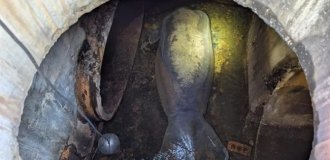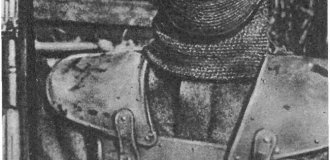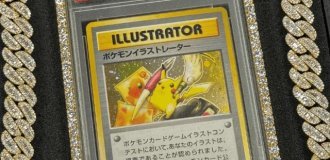In England, a search engine with a metal detector discovered a Roman tin treasure (5 photos + 1 video)
In the English Suffolk in September 2022 were found rare artifacts of 2000 years ago - Roman pewter utensils (plates, dishes, bowls and cups). Discovered by treasure hunter Martin White during organized search event with metal detectors on the estate Euston Aistate. 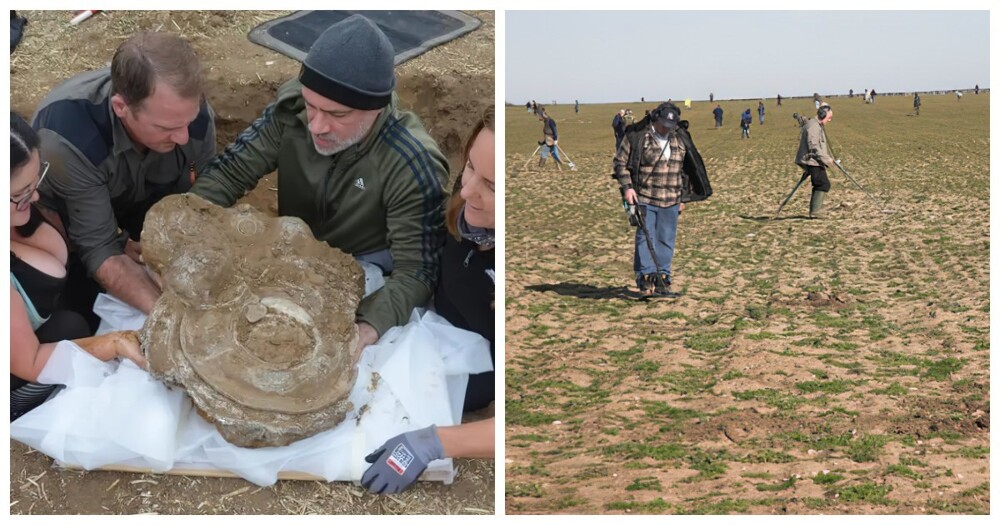
Despite the fact that Martin White is an amateur, he is in his business not a beginner, as he has been doing this hobby for about 10 years. He immediately assessed the treasure as important and contacted the Archaeological Service.
Further work on excavations and research was undertaken by a team of professional archaeologists. 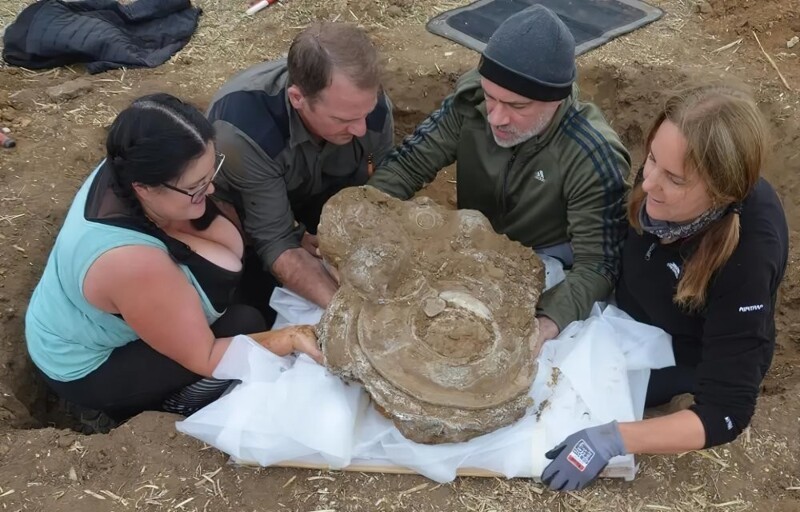
Since tin is not a precious metal, it is treasure of inestimable archaeological value is not considered official treasure and therefore belongs to the owner of the estate where found him. The Duke of Grafton, owner of the Euston Estate, donated the find to the museum West Stowe near Bury St Edmuns, saying "We were happy donate this treasure and make it available to the public. Now everyone will be able to share the joy of this historic find in Suffolk." 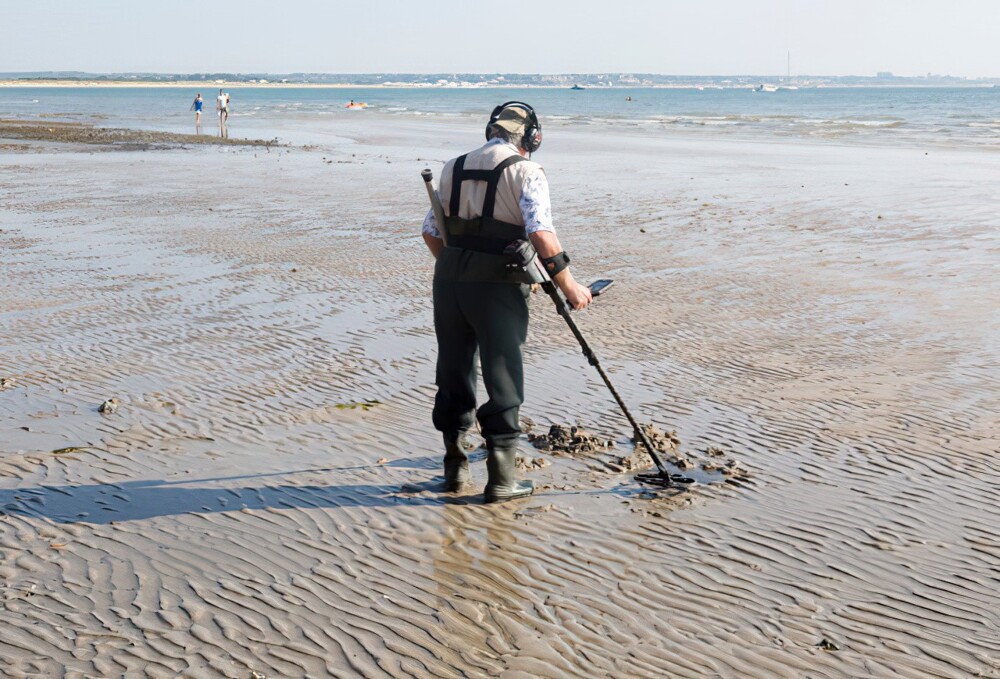
The Suffolk County Council Archaeological Service led excavations with Wardell Armstrong and the Norfolk Museum Service, and the latter took over the conservation work.
Martin White was included in the process, and adviser Melanie Vigo di Gallidoro said: "This is a fantastic example of working together when many people came together to help preserve Suffolk's history, and all of this was made possible thanks to the generous support of the Euston Estate, organizer of the East Anglia Rally search events and of course or Martin White. 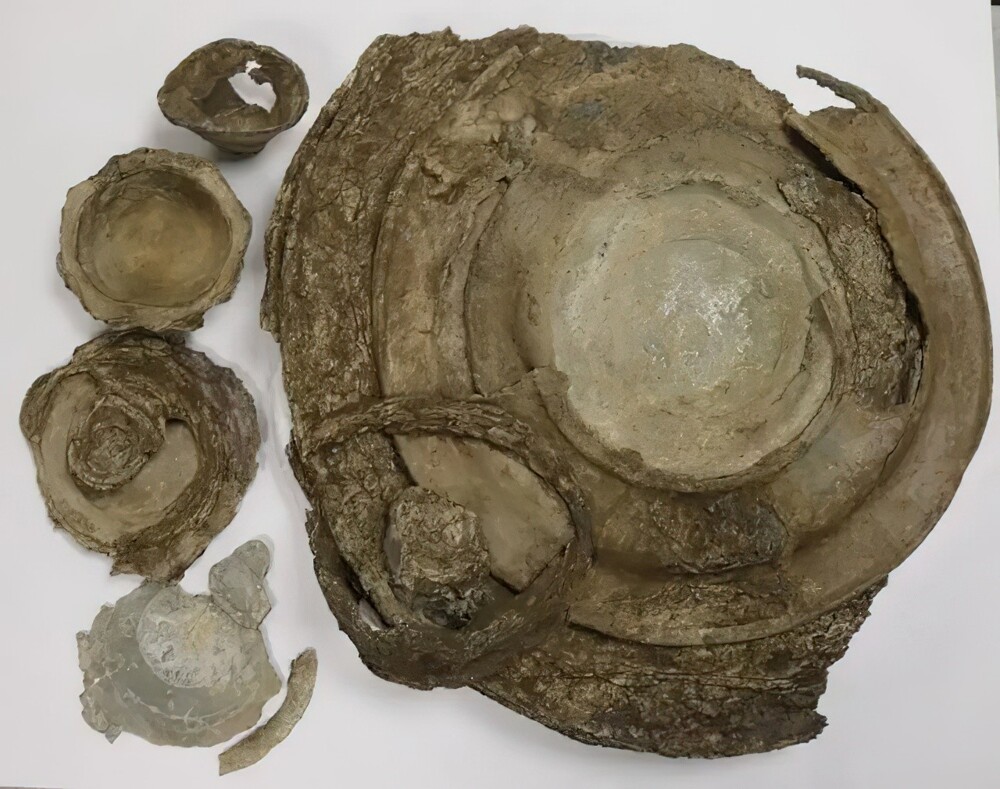
The set of dishes included several plates, bowls, dishes and cups. According to experts, they were buried intentionally - either in as an offering, or for preservation.
Alas, the past years have caused great damage to pewter. The items were stacked in a hole in the ground on top of each other, and due to corrosion melted into one. It also seems that they have passed through them more than once a plow that plowed the land in the area. However, tin items still in relatively good condition. The researchers were able date them to about the end of the 4th century AD. e., that is, late Roman period in British history.
This is an important discovery. Large plates were used for in order to serve food to everyone, and octagonal bowls can have Christian meaning. Similar hoards can be found in southern Britain, including including in the nearby major Roman settlements at Icklingham and Hawkwold, said Fay Minter, head of the archaeological archives and Suffolk County Council projects. 
To date, the artifacts are on display to the public in Anglo-Saxon Village and West Stowe Museum, where you must stay until January 2024.

